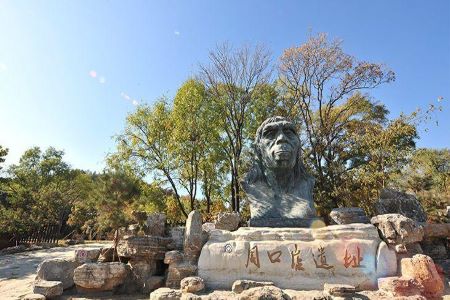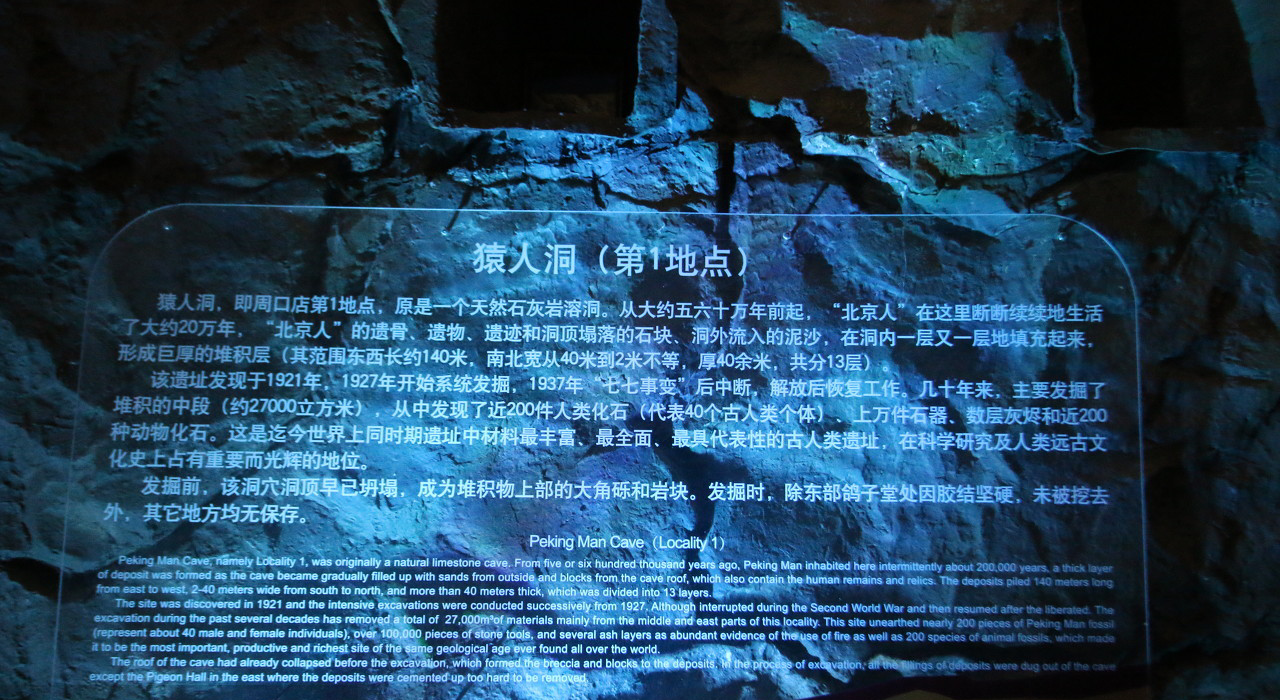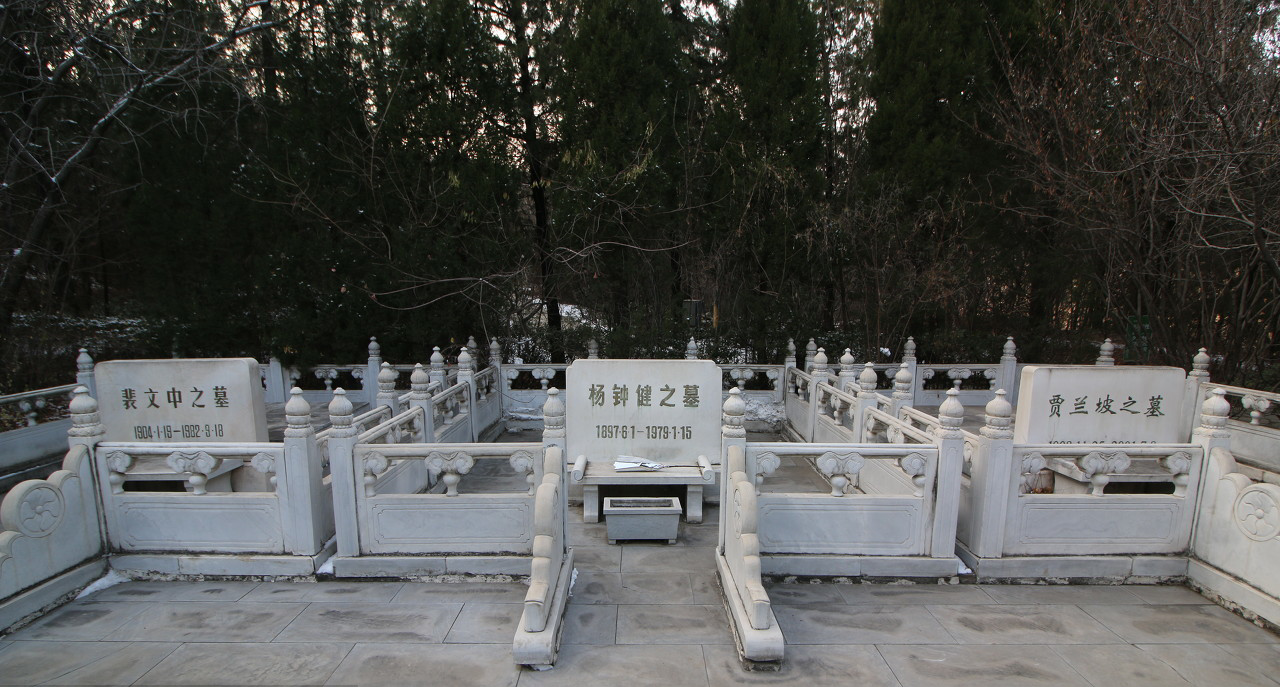Chinese Name: 周口店北京人遗址 Pronunciation: Zhōukǒudiàn Beǐjīngrén Yízhǐ
Recommended Time for Visit: 2 Hours
Occupied Area: About 8,000 square meters
Address: No. 1 Zhoukoudian Street, Fangshan District, Beijing, China
Function: It demonstrates not only rare historical evidence of human society on the Asian continent in ancient times but also the process of human evolution.
| Ticket Fare | |
| Adults | 30 Yuan |
| Full-time undergraduate students | 15 Yuan |
| Teenagers between 6 to 18 years old | |
| Primary and middle school students with certificates | |
1. Children under 6 years old (including 6 years old) or children under 1.2 meters (including 1.2 meters)
2. Seniors above 60 years old with ID cards
| Peking Man Site at Zhoukoudian |
Peak Season
(April 1st to October 10th)
|
Low Season
(October 11th to March 31st)
|
| Opening Hours | 9:00-16:30 | 9:00-16:00 |
| Ticket Office Opening Hours | 9:00-16:00 | 9:00-15:30 |
The Peking Man Site at Zhoukoudian is an important site of the Paleolithic Age in China and an important heritage site under state protection. It is the most abundant, systematic, and valuable human site of the early Paleolithic Age in the world.

The Peking Man Site at Zhoukoudian, with its age ranging from 5 million years ago to more than 10,000 years ago, is a treasure house of human fossils and a multidisciplinary comprehensive research base including paleoanthropology, archaeology, paleobiology, stratigraphy, chronology, environmentology, and karstology.
There were more than 100,000 stone artifacts, about 200 hominid fossils, and 27 cultural heritage sites that have been discovered since 1927. Moreover, scientists have found remains of the Chinese ape-man genus Peking Man who lived around the Middle Pleistocene era. The Peking Man Site at Zhoukoudian was inscribed on the World Heritage List as a cultural heritage in 1987.
It bears witness to the human community from the Middle Pleistocene to the Paleolithic on the Asian continent and illustrates the evolutionary process. It not only shows rare historical evidence of human society on the Asian continent in ancient times but also the process of human evolution.
In 1918, Chemist McGregor Gibb discovered bone fragments at Zhoukoudian, about 40 km southwest of Beijing, and Johan Gunnar Andersson, a Swedish geologist and archaeologist, discovered an accumulation of fossils of ancient animals around Zhoukoudian.
In 1926, the ancient humans to whom the two human tooth fossils found at the site of Homo Erectus Pekinensis belonged were named “Peking Man”.
In 1949, the excavation of Zhoukoudian site resumed after the founding of the People’s Republic of China.
In 1961, the Peking Man Site at Zhoukoudian was announced as the first batch of important heritage sites under state protection by the State Council.
In 1987, the Peking Man Site at Zhoukoudian was inscribed on the World Heritage List as a cultural heritage.

Mountains near Zhoukoudian are mostly made up of limestone and many natural caves of different sizes were formed under the erosion of dripping water. Located at the east end of Zhoukoudian, Site 1 of Zhoukoudian Site is originally a natural limestone cave, commonly known as “Ape-man Cave”, where the Peking Man’s skull was unearthed.
Located in the upper cave of the Dragon Bone Hill (Longgu Shan), the east end of Zhoukoudian, Site 26 of Zhoukoudian Site (Upper Cave Man Site) is where the Upper Cave Man lived. The cave is divided into four parts: the entrance, the upper chamber, the lower chamber, and the lower cellar. The upper chamber is the residence and the lower chamber is the cemetery.

When Upper Cave Man lived at Zhoukoudian, they were in the stage of matriarchy. Women played a leading role in social life and they established kinship according to the matrilineal lineage.
They learned to use common tools, worked together, and shared their food. There was no distinction between rich and poor. Upper Cave Man still used chipped stone tools, but they had mastered polishing and drilling techniques.
They made fire, lived by gathering and hunting, caught fish, and traveled long distances to exchange goods with other primitive populations. They could also make clothes with bone needles and learned to love beauty as perforated animal teeth, shells, and polished stone beads were found in the cave. They had to be buried after they died.
1. Smoking and open fire are prohibited within the site.
2. Any dangerous objects or animals are not allowed in the site.
3. Please take care of the public service facilities in the site.
Take bus Fangshan No. 38 and get off at Yuanren Yizhi Station.
Take bus Fangshan No. 32, Fangshan No. 37, and get off at Zhoukoudian Station. You need to walk about 1 kilometer to the East Gate of the Peking Man Site at Zhoukoudian.
Chinese: 请带我去周口店北京人遗址。 English: Please take me to the Peking Man Site at Zhoukoudian.
Chinese: 请带我去周口店北京人遗址东门。English: Please take me to the East Gate of the Peking Man Site at Zhoukoudian.
If you go to the Peking Man Site at Zhoukoudian from the center of Beijing (Grand Hyatt Beijing), it takes about 1.2 hours (about 150 yuan).
If you go to the Peking Man Site at Zhoukoudian from Beijing Capital International Airport, it takes about 1.5 hours (about 250 yuan).
If you go to the Peking Man Site at Zhoukoudian from Beijing Daxing International Airport, it takes about 1 hour (about 200 yuan).
If you go to the Peking Man Site at Zhoukoudian from Beijing West Railway Station, it takes about 65 minutes (about 160 yuan).
